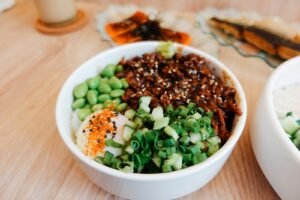Unlocking the Power of Quercetin: A Natural Health Wonder

Introduction: In the world of natural health remedies, one powerful compound that has been gaining increasing attention is Quercetin. This flavonoid, abundantly found in various fruits, vegetables, and plants, offers a myriad of health benefits that can significantly impact our well-being. From its potent antioxidant properties to its potential in combating inflammation, let’s delve into the remarkable health benefits of Quercetin.
- Antioxidant and Immune Support: Quercetin acts as a potent antioxidant, scavenging harmful free radicals in the body. By doing so, it helps protect our cells and tissues from oxidative stress, which is associated with various chronic diseases and aging. Additionally, Quercetin is known for its ability to support the immune system, enhancing the body’s natural defense mechanisms against infections and illnesses.
- Anti-Inflammatory Properties: Inflammation is a natural response of the body to injuries or infections, but chronic inflammation can lead to various health issues. Quercetin’s anti-inflammatory properties can help reduce inflammation and alleviate symptoms associated with conditions such as arthritis and allergies.
- Cardiovascular Health: Research suggests that Quercetin may promote heart health by supporting healthy blood pressure levels and improving blood flow. Its ability to reduce oxidative stress and inflammation also contributes to a healthier cardiovascular system.
- Respiratory Health: Quercetin has shown promise in supporting respiratory health by inhibiting the release of histamines, which can cause allergic reactions and respiratory distress. This makes it a potential natural remedy for managing asthma and seasonal allergies.
- Brain Health and Cognitive Function: Studies indicate that Quercetin may have neuroprotective effects, which means it could help protect brain cells from damage and degeneration. Furthermore, its antioxidant properties may help improve cognitive function and memory.
- Exercise Performance and Recovery: Athletes and fitness enthusiasts may find Quercetin beneficial, as it has been linked to enhanced exercise performance and reduced muscle fatigue. Additionally, its anti-inflammatory effects can aid in post-workout recovery.
- Skin Health: Quercetin’s antioxidant properties extend to the skin, where it helps protect against UV-induced damage and premature aging. It can also support collagen production, contributing to healthier, youthful-looking skin.
Quercetin is undoubtedly a remarkable compound that can work wonders for our health and well-being. Incorporating Quercetin-rich foods into our diet or considering supplements, when needed, can help us harness the full potential of this natural health powerhouse. However, it’s essential to consult with a healthcare professional before starting any new supplement regimen, especially if you have existing health conditions or are taking medications. Embrace the power of Quercetin and embark on a journey towards a healthier, happier life!
Quercetin is a naturally occurring flavonoid, and it can be found abundantly in various plant-based foods. Here are some of the exact sources of Quercetin:
- Onions: Onions, particularly red onions, are one of the richest sources of Quercetin. The outer layers of red onions contain higher concentrations of this flavonoid.
- Apples: Apples, especially the skins, are another excellent source of Quercetin. Eating the skin along with the flesh provides a higher Quercetin content.
- Berries: Various berries like blueberries, blackberries, and cranberries are rich in Quercetin. These colorful fruits offer a healthy dose of antioxidants and other beneficial compounds.
- Citrus Fruits: Citrus fruits like oranges, lemons, and grapefruits contain Quercetin in their peels. However, the levels might not be as high as in other sources.
- Leafy Greens: Dark leafy greens such as kale, spinach, and broccoli are good sources of Quercetin. Including these vegetables in your diet can boost your Quercetin intake.
- Tomatoes: Tomatoes and tomato products, such as tomato sauce and paste, contain Quercetin, with higher concentrations found in the skin.
- Green Tea: Green tea is a beverage that contains Quercetin, among other beneficial compounds like catechins and polyphenols.
- Red Grapes: Quercetin is present in the skins of red grapes, which is why red wine can also be a source of this flavonoid.
- Nuts and Seeds: Certain nuts and seeds, like almonds and pistachios, contain Quercetin in moderate amounts.
- Herbs: Various herbs used in cooking and herbal teas, such as parsley, sage, and cilantro, also provide Quercetin.
It’s important to note that the Quercetin content can vary depending on factors such as the plant’s variety, growing conditions, and ripeness. Including a diverse range of fruits, vegetables, and plant-based foods in your diet will ensure you get a healthy intake of Quercetin, along with other essential nutrients and antioxidants.

Comments